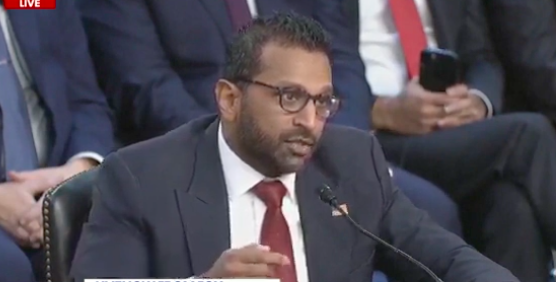FBI Director Used Lie Detector Test to Ask Employees If They Ever Said Anything Bad About Him: Report
Sources revealed that dozens of staff members have been made to take polygraph tests

FBI Director Kash Patel reportedly used polygraph tests to determine if his employees had ever spoken negatively about him.
Since Patel assumed the role of Director at the Bureau, the FBI has reportedly increased its usage of lie detector tests, even having employees of the Bureau undergo such tests, according to The New York Times.
The FBI allegedly asked senior employees if they had ever spoken negatively of Patel while they were actively hooked up to polygraph tests, reported two anonymous sources familiar with the matter. Furthermore, after the media reported that Patel had demanded a service weapon, members of FBI staff were subjected to polygraph tests so Patel could figure out who leaked the information.
Former officials have further revealed that any negative talk about Director Patel or his deputy, Dan Bongino, could cost bureau employees their job, indicating Patel's focus on how he is perceived in the public eye. Officials have agreed that such use of polygraph tests is incredibly inappropriate and constitutes bad practice.
"An F.B.I. employee's loyalty is to the Constitution, not to the director or deputy director," said James Davidson, a former agent who spent 23 years in the bureau. "It says everything about Patel's weak constitution that this is even on his radar."
Veteran analyst Tonya Ugoretz was placed on administrative leave after it was revealed that she repealed an intelligence report from an informant in Albany, New York, due to weak sourcing. The report claimed that China had impacted the results of the 2020 presidential election and swayed the results in favor of former President Joe Biden.
Many top officials and agents have faced repercussions for certain actions, including being ousted from their positions or moved into different fields. Some have simply chosen to retire prematurely in order to avoid consequence.
Originally published on Latin Times
© Latin Times. All rights reserved. Do not reproduce without permission.



















